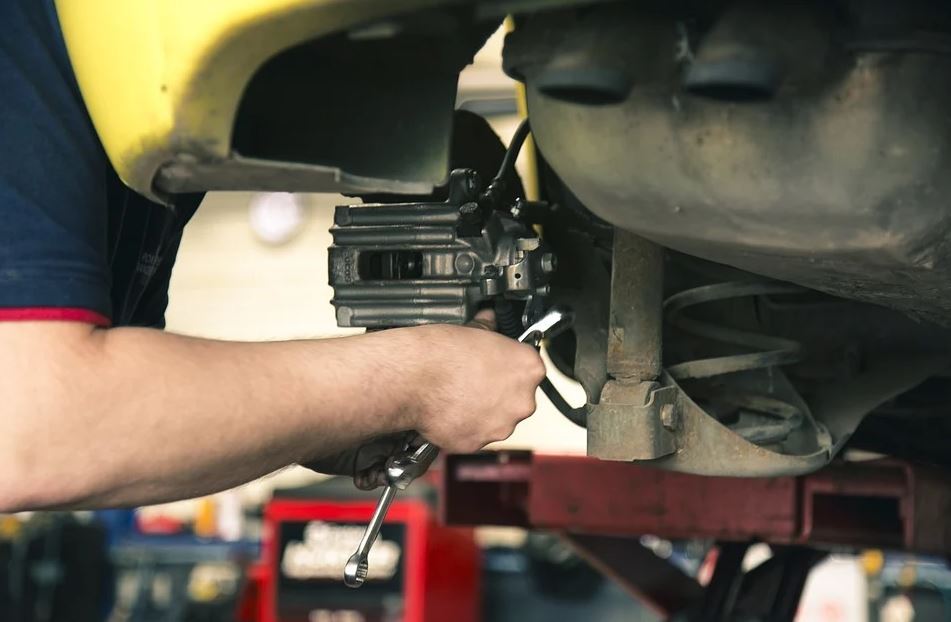The Importance of Brake Maintenance, Part Two
Brakes are critical to ensuring our safety on the road. Vehicle owners should have a general understanding of its brake system and the brake maintenance it requires. This is part two of our overview brake system and what services brakes require.

Brake System Maintenance
Brake system maintenance allows your auto technician to evaluate the degree of brake pad wear and determine when replacement is necessary.
Brake Pads and Rotors
Brake pads and rotors are the point at which the braking system connects with the tires. Due to the stress of extreme friction, these components deteriorate more easily than others and need more frequent maintenance. It is important to inspect the condition and depth of the pads to make sure there is sufficient resistance.
Brake Fluid
A car’s brake system relies on a hydraulic fluid, commonly referred to as brake fluid. Flowing through the brake lines, brake fluid provides the power or force necessary to bring a vehicle to a stop. It is necessary to drain and replace brake fluid periodically because it absorbs moisture from the air and degrades over time. Changing brake fluid at recommended intervals will assure proper brake system functioning. Brake fluid changes are typically done every one or two years, however different vehicles will have different recommendations for best performance.
Since your vehicle’s brake system and brake fluid are so crucial to its safe operation, it is really important to have brake service maintenance done by a qualified professional automotive technician.
In addition having regular brake system maintenance performed, it is important to pay attention to any signs of brake problems and have them looked at right away.
Signs of trouble might include:
- Strange Noises When Braking
- Braking Causes the Vehicle to Pull to One Side
- Brake Pedal Feels Odd or Spongy
- Excessive Vibration When Braking
- Jerking Sensation As Brakes are Applied
Along with these warning signs, the brake system service light on your car’s dashboard will illuminate if your on-board diagnostic system senses any problems. Take your vehicle in for a brake system inspection.
